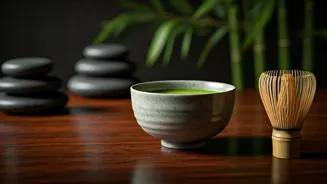Understanding Shin Gi Tai
Shin Gi Tai is a holistic Japanese philosophy, originating from martial arts, that emphasizes the interconnectedness of three key elements: Shin (spirit/mind),
Gi (technique/skill), and Tai (body). Shin embodies the mental and emotional aspects, representing your inner drive, intention, and focus. It is the wellspring of your motivation and the compass guiding your actions. Gi focuses on the practical execution, encompassing your skills, strategies, and the how-to of any task. It’s about mastering the techniques needed to achieve your goals. Tai refers to the physical aspect – your body, its health, and its ability to perform. It’s the foundation upon which both Shin and Gi are built, representing your physical presence and capacity. The synergy between these three elements is crucial. Shin provides the purpose, Gi offers the means, and Tai grants the ability. By harmonizing these components, individuals can achieve optimal performance, overcome challenges, and lead a more balanced and fulfilling life. This concept highlights the importance of integrating mental, physical, and technical prowess for overall success.
Shin: Cultivating Your Spirit
Shin, the spirit or mind, is the foundation upon which the other elements are built. It’s about cultivating a strong mental state, characterized by focus, determination, and a clear sense of purpose. To strengthen your Shin, start by clarifying your values and goals. What truly matters to you? What do you want to achieve? Once you've identified your core values, use them to guide your decisions and actions. Practice mindfulness to stay present and aware of your thoughts and emotions. Meditation, deep breathing, and other mindfulness techniques can help you manage stress and enhance your mental clarity. Another aspect is visualization. Regularly visualizing yourself achieving your goals can reinforce your belief in your ability and build momentum. Moreover, cultivate resilience. Embrace challenges as opportunities for growth and learn from setbacks. Develop a growth mindset, believing that your abilities can improve through dedication and hard work. Finally, always maintain a positive attitude. A positive outlook fuels your determination and enhances your ability to overcome obstacles. A strong Shin provides the mental fortitude needed to succeed in all endeavors.
Gi: Mastering Your Technique
Gi, the technique or skill, refers to the practical execution of your goals. This element involves acquiring and refining the skills necessary to achieve your objectives. Start by clearly defining the skills required for your goals. Identify the specific knowledge, abilities, and strategies needed for success. Next, break down complex tasks into smaller, manageable steps. This approach makes the learning process less overwhelming and promotes incremental progress. Commit to consistent practice. Regular practice is crucial for honing your skills and building proficiency. Dedicate time each day or week to focus on your craft. Seek out mentorship and guidance. Learn from experienced professionals or experts in your field who can provide valuable insights, feedback, and support. Analyze your performance to identify areas for improvement. Regularly review your work, seek feedback, and adjust your approach as needed. Embrace lifelong learning. The pursuit of knowledge and skill development should be continuous. Stay updated on new techniques, tools, and advancements in your field. By mastering your technique, you enhance your capacity to execute plans effectively.
Tai: Caring for Your Body
Tai, the body, forms the physical foundation of Shin Gi Tai. It involves taking care of your physical health and well-being. A healthy body is essential for sustained performance and overall well-being. Begin by prioritizing physical activity. Engage in regular exercise that suits your interests and abilities, such as walking, running, yoga, or weightlifting. Aim for a consistent exercise routine to maintain your physical fitness. Next, focus on proper nutrition. Eat a balanced diet rich in essential nutrients, vitamins, and minerals. Consume whole foods, including fruits, vegetables, lean proteins, and whole grains, while limiting processed foods and sugary drinks. Prioritize adequate sleep. Aim for 7-9 hours of quality sleep each night to allow your body to recover and function optimally. Implement stress management techniques. Incorporate practices like deep breathing, meditation, or spending time in nature to manage stress and promote relaxation. Regularly monitor your health. Schedule routine check-ups with your doctor and address any health concerns promptly. Taking care of your physical health fortifies your ability to approach your goals and provides the energy and stamina to pursue them.
Integrating Shin, Gi, Tai
The true power of Shin Gi Tai arises when these three elements work together in harmony. Begin by establishing a clear intention (Shin). Define your goals and understand the 'why' behind them. What do you want to achieve, and why is it important to you? Then, identify the techniques (Gi) necessary to achieve your goals. Determine the skills you need to acquire or hone, and create a plan for skill development. Implement a training regimen for all three elements. Schedule time for mental training (Shin), technical practice (Gi), and physical conditioning (Tai). Ensure you allocate time to each aspect. Monitor your progress and adapt your approach as needed. Regularly assess your performance in all three areas. Identify areas where you excel and areas where you need to improve. Make adjustments to your strategies, techniques, and physical practices as needed. Reflect on your journey to appreciate the interplay between Shin, Gi, and Tai. Celebrate your achievements and learn from any setbacks. By integrating these elements, you cultivate a balanced and purposeful approach to life.
Shin Gi Tai in Daily Life
Shin Gi Tai isn’t confined to martial arts; it's applicable to everyday activities and goals. For example, if your goal is to improve your public speaking skills, your Shin would be driven by your desire to communicate effectively, while your Gi would include practising your delivery, structuring speeches and gathering audience feedback. Your Tai would involve working on your physical presence: voice projection, posture, and managing stage fright. In pursuing a career advancement, your Shin would include your ambition, while Gi involves acquiring the necessary technical skills or building a network, and Tai focuses on maintaining your health and energy levels. For those aiming to enhance relationships, Shin relates to genuine empathy and communication, Gi includes communication strategies, and Tai means self-care and mental well-being. Whether it's cooking, pursuing hobbies, or managing professional tasks, applying Shin Gi Tai encourages comprehensive development. Integrating this philosophy allows you to approach each goal with greater focus, skill, and physical well-being, thereby unlocking greater potential in all areas of your life.












